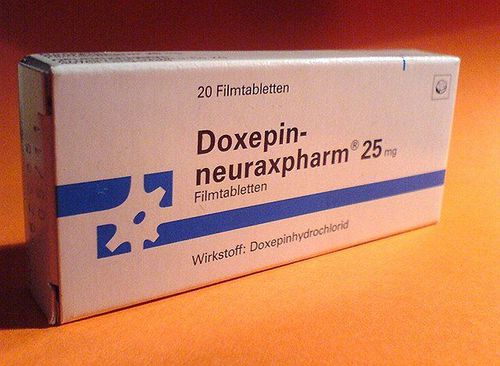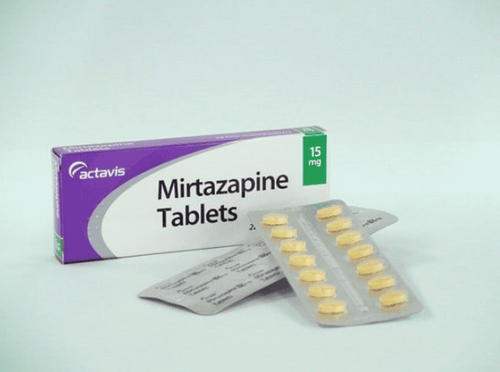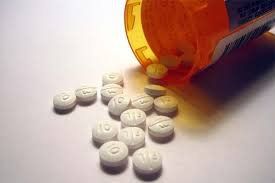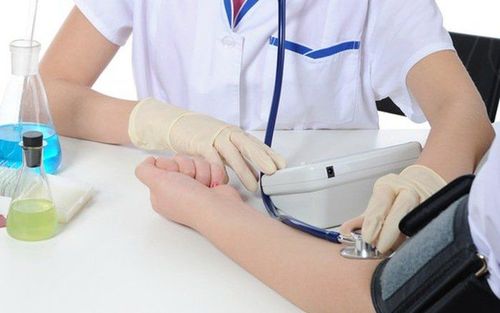This is an automatically translated article.
Using antidepressants and psychotherapy is the current treatment for depression. However, in the process of using antidepressants, patients need to note a few things to promptly notify the doctor and have a treatment plan.
1. Antidepressants
To achieve high efficiency in the treatment of depression, doctors often assign patients to combine 2 groups of antidepressants with drugs that have anti-anxiety and psychotic effects. Below are the classes of drugs used to treat depression.
SSRI group (including drugs such as sertraline, paroxetine, fluoxetine, citalopram,...): This group selectively inhibits the reuptake of serotonin - a neurotransmitter in the brain to reduce symptoms symptoms of depression. Compared with other antidepressant drugs, this group of drugs is commonly used because of its high effectiveness and few side effects. Some side effects can include headache, dizziness, nausea, diarrhea, dry mouth, weight loss, insomnia, sexual dysfunction ...
SNRI group (including drugs such as venlafaxine) , duloxetine, desvenlafaxine,...): It inhibits the reuptake of serotonin and norepinephrine - neurotransmitters in the brain. Common side effects of this class of antidepressants include dizziness, nausea, constipation, sweating, and sexual dysfunction.
TCA group (including drugs such as imipramine, doxepin, desipramine, amitriptyline,...):

Thuốc nhóm TCA (doxepin)
Has the effect of inhibiting the reuptake of serotonin, norepinephrine and alpha-adrenergic receptors, histamine H1, muscarinic M1. This is a group of tricyclic antidepressants, this group is rarely used because of many side effects despite high treatment efficiency. Common side effects of this group of drugs are blurred vision, dizziness, memory loss, constipation, dry mouth, urinary retention, tachycardia, low blood pressure, sexual dysfunction, etc.

Thuốc mirtazapin
MAOI group (including drugs such as isocarboxazid, phenelzine, tranylcypromine,...): They inhibit the activity of monoamine oxidase enzyme - the enzyme responsible for breaking down neurotransmitters in the brain such as serotonin , norepinephrine and dopamine. In cases where the above drugs are not effective, this class of antidepressants is only used because they can cause many serious side effects such as weight gain, postural hypotension, and sexual dysfunction.
Atypical antidepressants (including drugs such as trazodone, mirtazapine, bupropion, ...): Affects serotonin, norepinephrine and dopamine in the brain. This is a group of atypical antidepressants that cause some side effects such as dizziness, low blood pressure, dry mouth, constipation, ...
2. Note when using anti-depressants
Although the use of antidepressants is prescribed by a doctor, patients should note some of the following information:
If one of the symptoms such as headache, dizziness, nausea, insomnia, constipation, dry mouth, drowsiness (during the day), agitation, nervousness, decreased sexual function, etc., it is necessary to notify the treating doctor to check the symptoms. Is this a side effect of the medication? The use of antidepressants in children, adolescents and young adults should be closely monitored and monitored because the drug has the potential to make the symptoms of the disease worse (such as insomnia, irritability, etc.). active), severe may increase the risk of suicidal thoughts or thoughts. In patients with depression who are elderly with symptoms such as less sleep, impaired memory, frequent anxiety, sadness, etc., it is difficult to detect the disease. Therefore, patients need to be detected early, and at the same time limit the use of drugs for a long time.

Tư vấn sử dụng thuốc trước khi dùng
If your symptoms do not improve within 3 months of using the drug, you should consider taking an antidepressant because the illness may get worse or the medication may cause serious side effects. In addition to criteria such as high treatment efficiency, few side effects, the selection and prescription of drugs also need to be consistent with the patient's current health status (other comorbidities), psychotropic drugs God has used and is using. Therefore, patients need to fully inform their doctor to get appropriate drug advice. If you stop or reduce the dose of an antidepressant suddenly, you can quickly experience symptoms such as nausea, headache, sweating, muscle contractions, insomnia, increased blood pressure, heart palpitations, etc. Therefore, if a drug is to be discontinued, especially those with a short half-life, the dose should be reduced gradually and gradually. In order to effectively treat depression, patients need to see specialists early, especially elderly patients, and at the same time keep in mind the notes when using the above mentioned drugs.













